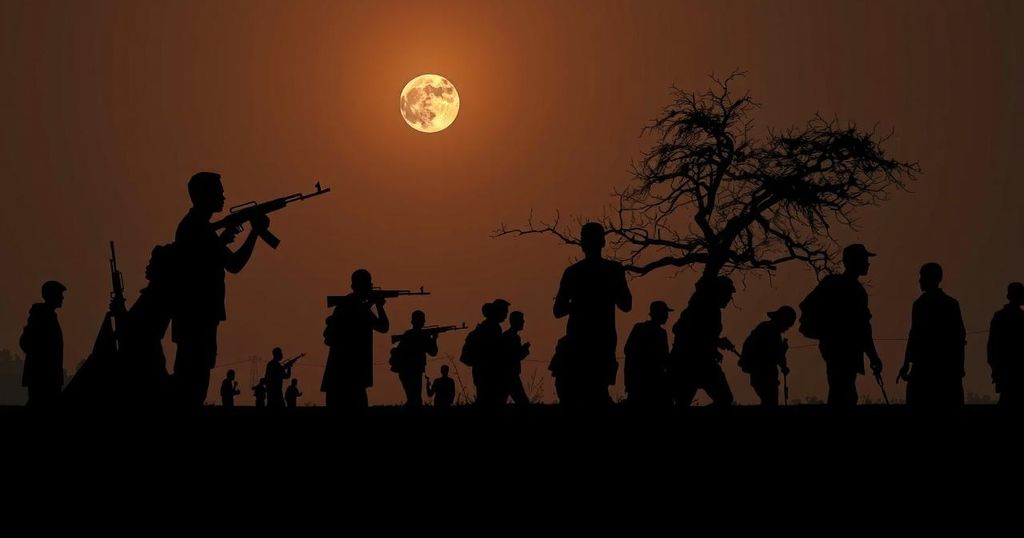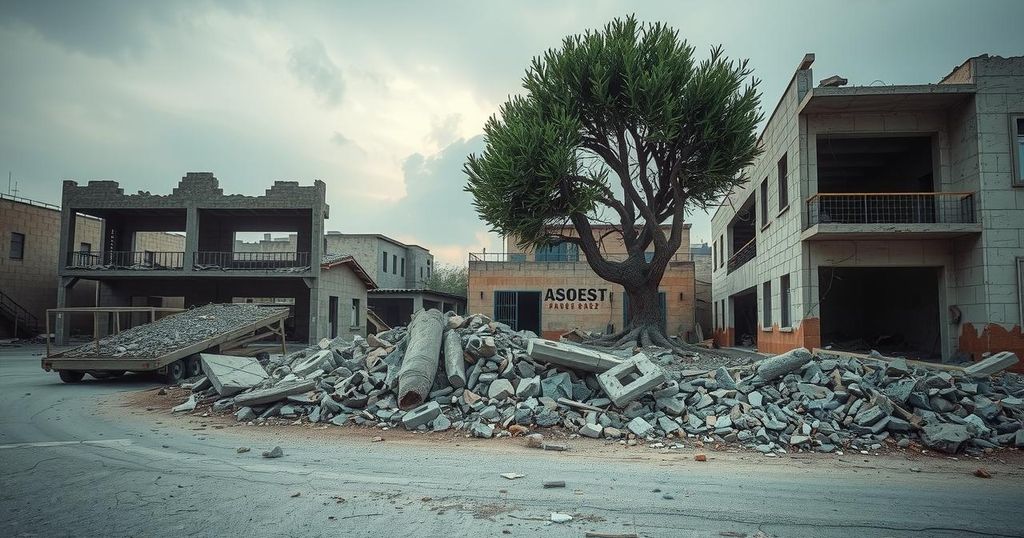U.S. Challenges in Addressing the Sudanese Civil War: A Reflection on Impotence and External Interference
The failure of U.S.-Saudi-led talks in Geneva to resolve the Sudanese civil war reflects America’s waning influence in a multipolar world. The ongoing conflict involves external powers like the UAE and Egypt, which complicates diplomatic efforts. The struggle for power between rival generals has resulted in a prolonged stalemate, underscoring the limitations of U.S. foreign policy in the current global landscape.
The recent meeting held in Geneva by the United States and Saudi Arabia in mid-August aimed at addressing the humanitarian catastrophe and civil war in Sudan ended unsuccessfully, underscoring a significant decline in American influence in a world increasingly marked by multipolarity. Reports from a United Nations expert group and investigations by Amnesty International pinpointed the critical involvement of external players, specifically the United Arab Emirates (UAE) and Egypt, in exacerbating the conflict through arms provision to opposing factions. Unfortunately, both nations remain pivotal U.S. allies in the region, particularly amid the ongoing Gaza conflict, leaving Washington with limited options to curb their interference or facilitate genuine negotiations between the rival Sudanese generals. The conflict in Sudan ignited on April 15, 2023, when the Sudanese Armed Forces (SAF), led by General Abdul Fattah al-Burhan, clashed with the Rapid Support Forces (RSF), commanded by General Mohammed Hamdan Daglo, commonly referred to as Hemedti. This civil war follows a long history of coups and internal strife aimed at establishing democracy in Sudan after the ousting of General Omar al-Bashir’s military regime, which spanned from 1989 to 2019. Previously allies in the removal of al-Bashir in 2019, the two generals turned against each other as al-Burhan sought to consolidate power by integrating the RSF into the SAF, a move that triggered the current civil war. Internationally, various entities have supported both forces, with the Wagner Group reportedly involved since 2017, providing military training and support. Notably, the interim regime received substantial financial backing from the UAE and Saudi Arabia, which also necessitated the deployment of Sudanese troops to fight in Yemen. As the conflict escalated, the UAE notably backed the RSF, supplying advanced weaponry and assistance while Russia shifted its allegiance back to al-Burhan, attracted by promises concerning strategic naval interests along the Red Sea. Moreover, Egypt has fortified the SAF with considerable military resources and has sent troops to assist in their operations. The interference of these external powers has entrenched a deadlock, whereby neither faction can achieve a definitive victory, resulting in a prolonged confrontation. Currently, the RSF has gained a substantial foothold in central and western Sudan, largely due to UAE-supported arms influxes, while the SAF continues to dominate the northern and eastern regions. The impasse has been further exacerbated by al-Burhan’s withdrawal from peace initiatives led by the Intergovernmental Authority on Development (IGAD) and the unsuccessful Geneva conference, which attempted to bring parties to the negotiating table with American and Saudi mediation. Reflecting on the geopolitical landscape, the article delineates how the United States has experienced a significant reduction in its hegemonic status post-Cold War, encountering resistance from various global powers. Thus, unless Washington is willing to reallocate its limited diplomatic and military resources from other critical global regions—including Ukraine and the Middle East—to resolve the Sudanese situation, it remains with little meaningful influence in the current crisis, a predicament unlikely to change irrespective of the outcome of upcoming U.S. elections.
The civil war in Sudan represents a culmination of years of political instability, military coups, and societal upheaval following the 2019 ousting of long-time dictator Omar al-Bashir. The conflict primarily pits the Sudanese Armed Forces against the Rapid Support Forces. Both factions have received substantial foreign backing, complicating peace efforts and underscoring the challenge facing the United States and its allies in mediating the situation. The involvement of external actors further muddies the waters, making a resolution increasingly perilous as factions grow more entrenched.
In summary, the situation in Sudan illustrates the limitations of American diplomatic maneuvering in a world replete with competing interests and powers. The inability to leverage support for a peaceful resolution highlights a shift from the era of American dominance to a multipolar reality where external actors hold considerable sway. The ongoing civil war, fueled by external military aid, has created a protracted conflict unlikely to resolve soon unless a coordinated international approach is embraced, which appears improbable given the current geopolitical dynamics.
Original Source: www.eurasiareview.com








Post Comment